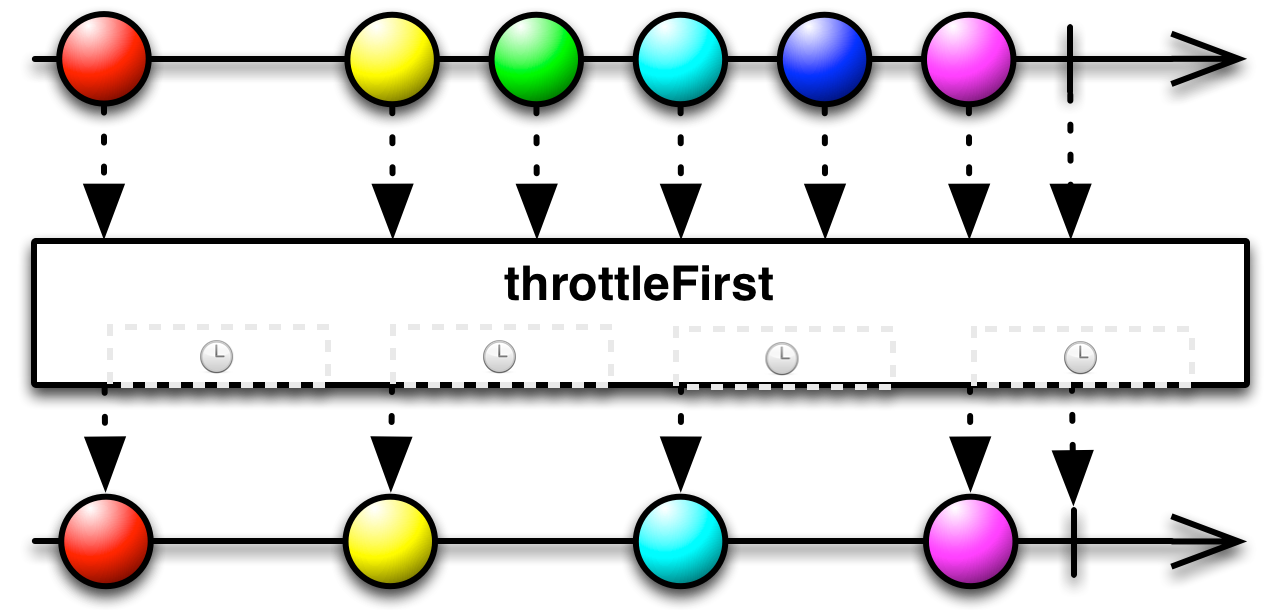That won't work if the source is cold because repeat will resubscribe and you get the very first element all over.
This should work for both cold and hot sources :
class Program
{
static void Main(string[] args)
{
new int[] { 100, 200, 300, 400, 500, 600, 1000 }.ToObservable()
.SelectMany(v => Observable.Timer(TimeSpan.FromMilliseconds(v)).Select(w => v))
.ThrottleFirst(TimeSpan.FromMilliseconds(210), Scheduler.Default)
.Subscribe(Console.WriteLine, () => Console.WriteLine("Done"));
Console.ReadLine();
}
}
static class OX
{
internal static IObservable<T> ThrottleFirst<T>(this IObservable<T> source, TimeSpan delay, IScheduler scheduler)
{
return source.Publish(o =>
{
return o.Take(1)
.Concat(o.IgnoreElements().TakeUntil(Observable.Return(default(T)).Delay(delay, scheduler)))
.Repeat()
.TakeUntil(o.IgnoreElements().Concat(Observable.Return(default(T))));
});
}
}
Currently there is no operator to ignore elements from an observable sequence that follow a non-ignored element within a specified relative time duration. This is what would normally be called
Throttle, while the existingThrotteoperator is really a debounce operator (see e.g. The Difference Between Throttling and Debouncing).Here is a sample implementation of the "real" throttle operator both with and without scheduler: